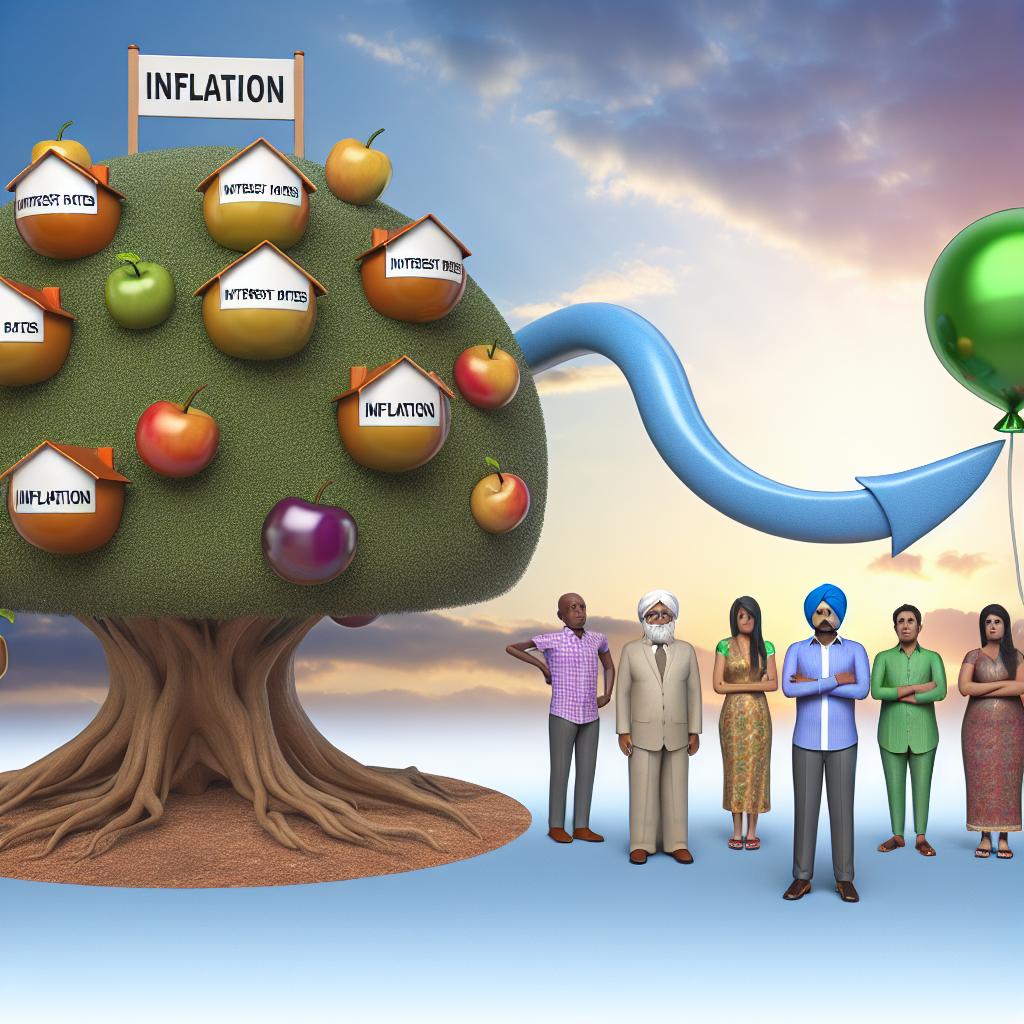
Inflation is commonly understood as the rate at which the general level of prices for goods and services increases, effectively diminishing the purchasing power of currency. This occurrence can have a marked effect on economic elements, such as mortgage interest rates. For both homebuyers and homeowners, understanding the interplay between inflation and mortgage interest rates is vital, as it can significantly influence the cost of borrowing money to purchase or refinance a home. Those engaged in real estate transactions need to comprehend the implications of inflation on their potential or existing mortgages due to its far-reaching consequences on their financial obligations.
In periods of rising inflation, the purchasing power of money tends to shrink. To address this, central banks, which play a critical oversight role in the economy, often decide to implement higher interest rates. The rationale for this is clear: by raising the cost of borrowing, central banks aim to temper consumer spending and investment activities. Such an approach seeks to decrease the upward pressure on prices. Consequently, higher interest rates serve to discourage new loans and reduce the money supply within the economy. For readers seeking more detailed insights into how central banks manage inflation, a visit to The Federal Reserve’s Website would be beneficial.
Mortgage interest rates are closely tied to the interest rates established by central banks. When central banks decide to increase interest rates as a measure to corral inflation, mortgage rates generally rise in tandem, maintaining a close relationship:
Rising Inflation: As inflation climbs, mortgage interest rates typically increase as well. Lenders seek to preserve returns on investment, which are adjusted for inflation, by raising rates.
Lower Inflation: Alternatively, in periods characterized by stable or low inflation, central banks might decide to lower interest rates, making borrowing costs more affordable, including those related to mortgages. This decline allows consumers to access cheaper mortgages, potentially stimulating housing market activity.
For individuals contemplating home purchases, the implications of rising mortgage rates fueled by inflation are multi-faceted. Foremost among these is the effect on affordability. As mortgage rates ascend, so too do the monthly payments required to service a loan. Consequently, the overall cost of purchasing a home increases, which can be a disincentive for potential buyers. This dynamic can ripple through housing market dynamics, affecting demand and possibly moderating price appreciation in certain segments.
Potential homebuyers, therefore, stand to benefit from staying abreast of not only inflation trends but also the wider economic conditions that may influence future movements in interest rates. Knowledge of these factors can aid in timing market entry decisions to take advantage of more favorable lending conditions.
For homeowners who are already tied into mortgage agreements, the effect of inflation is contingent upon the nature of their loan. Those with adjustable-rate mortgages (ARMs) may see their interest rates alter in tandem with inflationary trends. Unlike fixed-rate mortgages, where payment structures remain constant through the loan term, ARMs are subject to periodic adjustments that reflect the prevailing rate environment. Consequently, homeowners with ARMs might experience financial discomfort if inflation results in higher rates, compelling increased monthly payments.
Such changes in financial commitments necessitate budgeting adaptations to accommodate potentially higher expenses. Homeowners with ARMs might, therefore, need to examine strategies for either locking in a fixed rate or refinancing, should inflationary pressures push monthly payments beyond comfortable thresholds. Understanding these financial trends can thus empower homeowners to act proactively in order to shield themselves from unfavorable rate adjustments.
Armed with knowledge about the intrinsic link between inflation and mortgage interest rates, both potential homebuyers and current homeowners can better manage their financial positions. Strategic steps can be taken, such as timing a home purchase during periods of lower rates or considering refinancing options when rates are favorable.
When dealing with potential shifts in rates due to inflation, safeguarding one’s financial well-being starts with financial literacy and awareness. Potential homebuyers should educate themselves on fixed versus adjustable-rate mortgages to understand how each product may affect them under various economic conditions.
Individuals might also explore broader financial arrangements that can buffer against sudden economic changes. For instance, ensuring a diversified portfolio of assets might mitigate risks associated with fluctuating mortgage costs. Furthermore, establishing an emergency savings fund could provide a cushion in times of unexpected expenses stemming from rising rates.
Keeping abreast of economic policy changes, including those enacted by central banks, can also provide an advantage. Potential changes in monetary policy settings can serve as early indicators for expected movements in mortgage interest rates, aiding individuals in making timely financial decisions.
In summary, understanding the relationship between inflation and mortgage interest rates is essential for making informed financial decisions. Potential homebuyers and current homeowners should keep an eye on inflation trends, monetary policies, and central bank actions to remain prepared for any changes in mortgage costs. For a substantive, stable financial footing, awareness and proactive management strategies should guide individuals in navigating through the varying economic landscapes shaped by inflationary pressures.
This article was last updated on: August 4, 2025